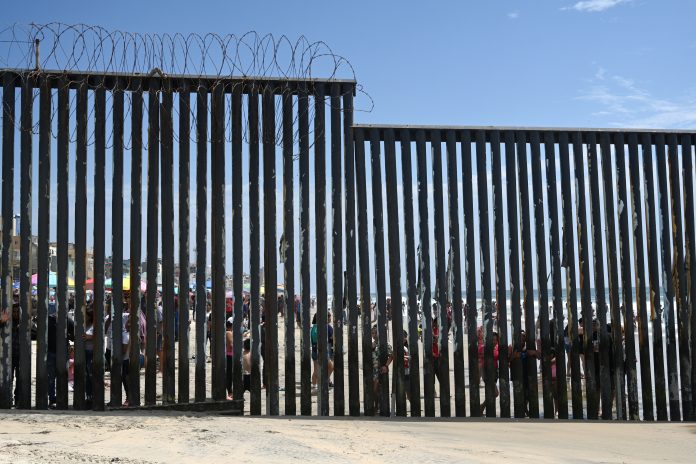
Homeland Security’s latest waiver ignites a swift push for border wall construction in California.
Key Takeaways
- The U.S. Department of Homeland Security issued a waiver to bypass environmental regulations for border barrier construction in Southern California.
- The waiver, signed by Secretary Kristi Noem, aims to expedite construction by cutting through bureaucratic delays.
- The waiver allows the construction of approximately 2.5 miles of the border wall near Jacumba Hot Springs, California.
- This is the first environmental waiver of President Donald Trump’s second term.
- Illegal crossings in the area have decreased due to increased enforcement by Mexican authorities and asylum restrictions introduced by President Joe Biden.
Accelerated Border Construction
The waiver, for many, represents President Trump’s renewed commitment to border security in his second term. Issued by Homeland Security, it aims to expedite the construction of a portion of the border wall, bypassing environmental regulations. This decision specifically permits construction near Jacumba Hot Springs, California. By removing bureaucratic obstacles, the proposed 2.5-mile stretch of border wall is expected to proceed quickly, bolstering existing border defenses.
Environmental groups, including Earthjustice, have criticized the waiver for ignoring laws meant to protect ecological and cultural resources. Conversely, the administration stresses its importance for national security. Illegal crossings in these areas have reportedly fallen, partly due to enhanced enforcement by Mexican authorities and asylum policy changes. Nonetheless, the administration remains focused on fortifying the border, reflecting broader immigration policy objectives.
Challenges and Opposition
Despite the waiver’s introduction, environmentalists continue to argue its potential harm to natural habitats and heritage sites. Critics express concern over prioritizing construction speed over governmental checks and balances. Nonetheless, the Homeland Security Department sees it as necessary to improve border infrastructure and ensure sovereignty. Secretary Kristi Noem emphasized the need for swift action to maintain enforcement capabilities and curb illegal crossings.
U.S. Border Patrol officers continue to manage a myriad of border security challenges. Around 220 individuals are reportedlydetained daily for illegal entries from Mexico, underscoring ongoing security issues. The waiver and subsequent wall will likely aid in further reducing these numbers, enhancing border agent effectiveness. With an anticipated broader rollout of similar waivers, construction speed could increase significantly along the entire southern border, resulting in tangible impacts on border security and immigration control.
Administration’s Focus on Security
The Trump administration’s ongoing efforts to secure the southern border remain a focal point, with the waiver illustrating a commitment to overcoming regulatory hurdles. Such initiatives reflect a broader immigration policy, aiming to deter illegal crossings. Thus far, over 50 miles of border wall have been constructed since Trump’s inauguration. Moving forward, waived regulations could expedite further construction efforts across strategic locations.
While controversial to some, the waiver marks a decisive step in strengthening national borders. Homeland Security’s actions may serve as a cornerstone in future policy discussions regarding border security and immigration strategy.





